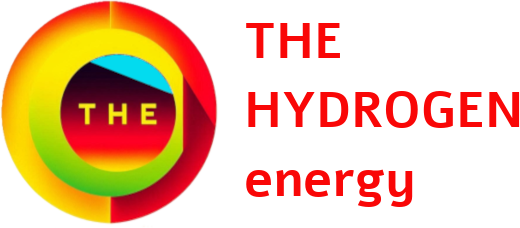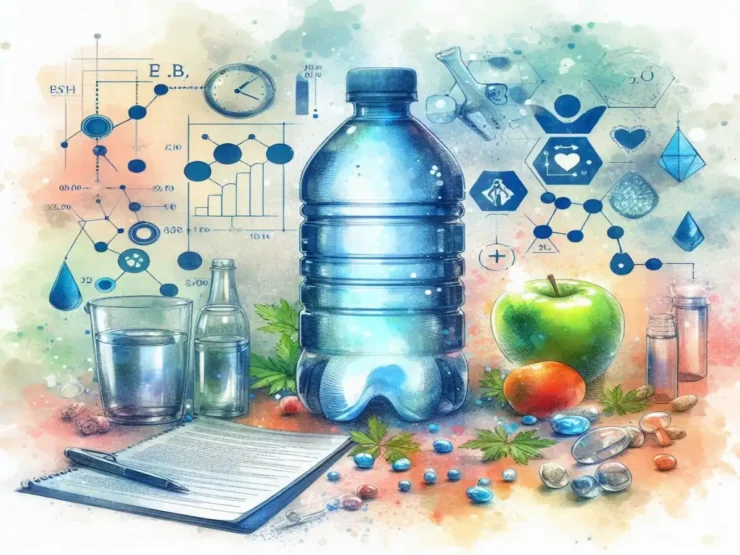Hydrogen Water, also known as Hydrogen-rich water (HRW) or Hydrogenated water (HW) or Molecular hydrogen has emerged as a novel approach in the field of health and wellness.
Hydrogen Water: Separating Hype from Science: An In-Depth Look
For years, you’ve probably heard about the importance of drinking enough water. But lately, you might have also come across “hydrogen water.” It’s often touted as a super-hydrating, health-boosting drink. But what exactly is hydrogen water? And is there real science to back up the claims, or is it just another wellness trend?
Let’s dive deep into the world of hydrogen water, looking at the science, the research, and what it might actually mean for your health. However, it has also been the subject of skepticism, with some dismissing it as a scam. We’ll break down the complex stuff into simple terms and focus on facts and figures from recent studies, while also exploring the history behind this growing interest.
What Exactly is Hydrogen Water?
Imagine regular water, H₂O, the stuff we drink every day. Hydrogen water is simply this same water with extra hydrogen gas (H₂) dissolved in it. Think of it like carbonated water, where carbon dioxide gas is dissolved to make bubbles, but instead of carbon dioxide, we have hydrogen gas.
For core nutrition, hydrogen water is essentially the same as plain water, primarily providing hydration. Any added vitamins or minerals are variable and determined by the water’s origin and specific producer.
The amount of hydrogen gas in hydrogen water is usually quite small, measured in parts per million (ppm) or milligrams per liter (mg/L) – these are the same thing. You’ll often see hydrogen water products claiming to have between 0.5 ppm to 1.6 ppm of dissolved hydrogen. This might sound tiny, but because hydrogen is such a small and unique molecule, even these small amounts can have interesting effects in our bodies.
Hydrogen Water, Hydrogen Rich Water – The Historical Path to Research: From Deep Sea to Daily Drink
- 1671: Robert Boyle produced hydrogen gas by reacting iron with acids
- 1766: Henry Cavendish identifies hydrogen gas as a distinct element.
- 1888: French physician Armand Gautier proposes the use of hydrogen gas for therapeutic purposes, particularly for treating respiratory and gastrointestinal disorders.
- 1975: A study by Dole et al. suggests that hyperbaric hydrogen therapy could reduce tumor growth in mice, marking one of the first modern investigations into hydrogen’s medical potential.
- 2007: A groundbreaking study by Ohsawa et al. published in Nature Medicine demonstrates that hydrogen gas selectively reduces cytotoxic reactive oxygen species (ROS) and protects against brain injury in rats. This study reignites interest in hydrogen as a therapeutic agent.
- 2010s–Present: Research on hydrogen water and hydrogen therapy expands, with studies exploring its effects on oxidative stress, inflammation, metabolic disorders, neurodegenerative diseases, and more.
The journey to hydrogen water research took an intriguing path, starting in the 1970s with deep-sea diving. Scientists explored hydrogen gas in breathing mixtures to enhance diver safety, aiming to reduce issues like nitrogen narcosis at great depths. While these early diving studies were valuable, the real shift that propelled hydrogen into the health spotlight occurred in 2007.
In 2007, a landmark study published in Nature Medicine by Dr. Shigeo Ohta and his Japanese team unveiled a key discovery: molecular hydrogen (H₂) could act as a therapeutic antioxidant. They demonstrated in lab experiments that hydrogen could selectively neutralize harmful free radicals. This 2007 Nature Medicine publication was the catalyst for the field of hydrogen water research. It was the first robust scientific evidence suggesting that hydrogen, when dissolved in water, could have biological effects with potential health benefits. Before this, hydrogen was largely considered biologically inert.
Hydrogen Water in Japan: Early Adoption and Wider Use
Dr. Ohta’s work was pivotal, opening new research avenues and inspiring global investigations into hydrogen’s potential across various health conditions. Naturally, drinking water became a prime delivery method for hydrogen, leading to the focus on hydrogen water.
Japan quickly became the global hub for hydrogen water research and adoption following Dr. Ohta’s discoveries. Japan was the first nation to widely embrace hydrogen water for its potential health benefits, significantly earlier than other regions.
Solubility of Hydrogen Gas in Water
The skepticism surrounding hydrogen water, particularly regarding the solubility of hydrogen gas (H₂) in water, is a valid concern. Hydrogen gas (H₂) is indeed poorly soluble in water under normal conditions. At standard temperature and pressure (STP, 25°C and 1 atm), the solubility of hydrogen in water is approximately 1.6 ppm (parts per million). This means that 1 liter of water can dissolve up to 1.6 mg of hydrogen gas. While this concentration is low, it is not negligible and has been shown to have biological effects in numerous studies.
- Low Solubility ≠ No Effect: Even at low concentrations, molecular hydrogen can exert biological effects due to its small size and ability to diffuse rapidly across cell membranes.
- Enhanced Solubility: The solubility of hydrogen can be increased by using pressurized dissolution or nanobubble technology, which allows higher concentrations of hydrogen to remain dissolved in water for longer periods.
Hydrogen Water: How Do You Get Hydrogen into Water?
There are a few main ways to make hydrogen water:
- Electrolysis: This is the most common method, using electricity to split water (H₂O) into hydrogen (H₂) and oxygen (O₂). Special devices called hydrogen water generators use this process and are often compact for home use.
- Magnesium Sticks or Tablets: Magnesium metal reacts with water to naturally produce hydrogen gas. These products are placed in water, where the magnesium reacts and releases hydrogen bubbles that dissolve.
- Hydrogen Gas Infusion or Pressurized Dissolution: Similar to making soda, hydrogen gas is bubbled directly into water commercially to create bottled or pouched hydrogen water. This method is often used in commercial hydrogen water bottles or cans.
- Membrane Electrolysis: A more advanced method uses a special membrane in electrolysis to more cleanly separate hydrogen and oxygen, potentially resulting in purer hydrogen water.
Hydrogen Water – The Science Behind the Buzz: Why Hydrogen Water Have Effects?
The potential health benefits of hydrogen water are linked to the special properties of molecular hydrogen (H₂):
- Smallest Molecule, Big Reach. Hydrogen is the smallest molecule in the entire universe, with a molecular weight of about 2 grams per mole. To appreciate this, Vitamin C, a known antioxidant, is around 176 grams per mole! This small size is key, allowing hydrogen to easily penetrate cell membranes, mitochondria (cellular powerhouses), and even the blood-brain barrier to reach the brain, unlike many larger antioxidants.
- The Selective Scavenger: Targeting the Bad Guys. Molecular Hydrogen (H2) is often referred to as a “selective antioxidant.” This selectivity is important because not all “free radicals” or “reactive oxygen species (ROS)” are harmful; some are needed for cell signaling. Hydrogen is believed to primarily target the most damaging ROS, such as hydroxyl radicals (•OH) and peroxynitrite (ONOO⁻). These are highly reactive and can damage DNA, proteins, and fats, leading to inflammation and disease. Hydrogen neutralizes these harmful ROS, converting them into harmless water (H₂O), while seemingly not affecting beneficial ROS.
- The Cellular Messenger: Influencing Cell Signals. Beyond its antioxidant properties, hydrogen appears to act as a cellular messenger, influencing various pathways within cells:
- Nrf2 Pathway Activation: Nrf2 acts as the master regulator of the body’s antioxidant defenses. Hydrogen can activate this pathway, prompting cells to produce more of their own powerful antioxidants like superoxide dismutase (SOD), catalase, and glutathione peroxidase (GPx).
- NF-κB Pathway Modulation: NF-κB is a key inflammatory pathway. Hydrogen can help reduce its activity, thus lowering the production of pro-inflammatory chemicals called cytokines.
- Ghrelin Stimulation: Ghrelin, known as the “hunger hormone,” also has anti-inflammatory and protective effects. Hydrogen may stimulate ghrelin production, contributing to its potential benefits.
What Does the Research Say? Exploring Potential Health Benefits with Data
There is no well established, 100% clinically proven, with solid curing evidence for the beneficial effects of drinking hydrogen water however research on hydrogen water is an active and growing field, showing initial promise. Let’s look at some key areas where studies are suggesting potential benefits:
- Antioxidant and Anti-inflammatory Power: Numerous studies suggest hydrogen water can effectively reduce oxidative stress and inflammation in the body. Hydrogen acts as a powerful antioxidant, reducing oxidative stress, which is linked to aging, chronic diseases, and inflammation. It can easily penetrate cell membranes and target mitochondria, where oxidative stress often originates. For example, a large review analyzing multiple randomized controlled trials found that drinking hydrogen-rich water significantly decreased markers of oxidative damage like malondialdehyde (MDA) and 8-hydroxydeoxyguanosine (8-OHdG), as well as inflammatory substances such as TNF-alpha and IL-6. In another study, mice with colitis, an inflammatory condition of the colon, showed reduced inflammation and a better balance of gut bacteria when given hydrogen water.
- Brain Health and Cognitive Function: Emerging research indicates that hydrogen water might offer protection to the brain and improve cognitive function. A clinical trial involving elderly individuals with mild cognitive impairment (MCI) showed that long-term hydrogen water consumption led to improved cognitive test scores and even a reduction in brain shrinkage compared to a placebo group. Supporting this, animal studies have demonstrated that rats with traumatic brain injury experienced less brain inflammation and improved cognitive function after receiving hydrogen water.
- Metabolic Health and Diabetes: Early research suggests hydrogen water could be beneficial for managing glucose control and lipid metabolism, crucial aspects of conditions like diabetes. A comprehensive review of studies examining hydrogen water’s effects on individuals with type 2 diabetes mellitus (T2DM) found evidence that hydrogen-rich water may indeed improve glucose control and lipid profiles in these patients.
- Exercise and Recovery: Some studies suggest that hydrogen water may aid in enhancing exercise performance and accelerating muscle recovery. For instance, a study focusing on resistance-trained men undergoing intense exercise revealed that those who consumed hydrogen water reported less muscle soreness and showed improved recovery markers post-exercise compared to a control group.
- Gut Health – An Emerging Area: More recent research is starting to explore hydrogen water’s influence on the gut microbiome – the vast community of bacteria in our digestive system. As noted earlier, the study on colitis in mice not only showed reduced gut inflammation with hydrogen water but also an improved composition of gut bacteria, hinting at a potential role for hydrogen water in promoting a healthier gut environment.
- Neuroprotective Effects: Hydrogen has shown promise in protecting brain cells from oxidative damage, which could be relevant for conditions like Parkinson’s disease, Alzheimer’s disease, and stroke.
Is Hydrogen Water Safe? Potential Cautions and Considerations
Hydrogen water is generally considered safe for most individuals. Hydrogen is a natural gas, and our bodies even produce trace amounts in the gut. However, it’s wise to consider a few points:
- Limited Long-Term Data: Long-term effects of consistent hydrogen water consumption require further research over extended periods.
- Possible Gut Discomfort: Some individuals, especially with sensitive stomachs, might experience mild bloating or gas, particularly when starting to drink hydrogen water.
- Medication Interactions (Theoretical): As hydrogen is an antioxidant, there’s a theoretical possibility of interaction with certain medications, such as specific chemotherapy drugs that rely on oxidative stress. Consulting a doctor is advised for those on medications, especially for serious conditions, before regular hydrogen water consumption.
- Product Quality is Key: The hydrogen water market has varying product quality due to limited regulation. Choosing reputable brands that provide hydrogen concentration information and ideally have third-party purity testing is important.
- Be Realistic About Claims: While research is promising, hydrogen water is not a magic bullet. Avoid exaggerated claims and view it as a potential supplementary wellness tool, not a replacement for established medical treatments or healthy lifestyle choices.
Making an Informed Choice: Is Hydrogen Water Right for You?
If you’re interested in hydrogen water, consider these points:
- Consult Your Doctor: Especially if you have existing health conditions or are taking medications.
- Choose Reputable Brands: Prioritize brands transparent about hydrogen concentration and quality.
- Start Slowly: If you decide to try it, begin with smaller amounts to gauge your body’s response.
- Manage Expectations: Understand it as a potential wellness aid, not a guaranteed cure.
- Prioritize Foundational Health: Hydrogen water is not a substitute for a balanced diet, regular exercise, and adequate sleep.
The Future of Hydrogen Water Research:
Ongoing and future scientific research will likely focus on:
- Deeper Gut Microbiome Research: Further elucidating hydrogen water’s precise effects on gut bacteria and overall gut health.
- Cancer Therapy Support: Investigating hydrogen water’s potential to improve cancer treatment outcomes and reduce side effects.
- Long-Term Health Impact: Conducting long-term studies to assess the effects of hydrogen water consumption on chronic disease risk over many year
In Conclusion: A Promising Area, But More Research Needed
Hydrogen water is a dynamic and intriguing area of scientific investigation. Hydrogen water does not look like a scam from a scientific perspective. There is credible research supporting its potential health benefits, particularly in reducing oxidative stress and inflammation. However, the effects are modest and should not be overstated. Hydrogen water is not a cure-all, and its benefits are most likely to be seen as part of a broader health regimen.
Current research is encouraging, suggesting potential benefits in reducing oxidative stress and inflammation, and with possible positive impacts on brain health, metabolism, exercise recovery, and gut health. While generally safe, it’s important to be a critical consumer, select quality products, and maintain realistic expectations. Hydrogen water shows promise as a potential wellness tool, but further robust, large-scale human studies are necessary to definitively confirm its benefits and fully understand its long-term effects. For now, it remains a subject of considerable scientific interest, requiring both ongoing research and a balanced perspective.
References:
Ohsawa, I., Ishikawa, M., Takahashi, K., Watanabe, M., Nishimaki, K., Yamagata, K., … & Ohta, S. (2007). Hydrogen acts as a therapeutic antioxidant by selectively reducing cytotoxic oxygen radicals. Nature Medicine, 13(6), 688-694. DOI: https://doi.org/10.1038/nm1577
Itoh, T., Hamada, H., Terazawa, R., Ito, M., Ohno, K., Ichihara, M., & Ohta, S. (2011). Molecular hydrogen improves glucose metabolism and lipid profiles in patients with type 2 diabetes. Medical Gas Research, 1(1), 24. DOI: https://doi.org/10.1186/2045-9912-1-24
Aoki, K., Nakao, A., Adachi, T., Matsui, Y., & Miyakawa, S. (2012). Pilot study: Effects of drinking hydrogen-rich water on muscle fatigue caused by acute exercise in elite athletes. Medical Gas Research, 2(1), 12. DOI: https://doi.org/10.1186/2045-9912-2-12
Ishibashi, T., Sato, B., Shibata, R., Ishigami, M., Ito, M., Kajiyama, S., … & Ohta, S. (2012). Effect of H2-rich alkaline electrolyzed water on subjective symptom improvements and antioxidant enzyme activities in patients with rheumatoid arthritis. Medical Gas Research, 2(1), 27. DOI: https://doi.org/10.1186/2045-9912-2-27
Zhao, Y., et al. (2023). Molecular hydrogen-rich water alleviates oxidative stress and inflammation: A systematic review and meta-analysis of randomized controlled trials. Antioxidants, 12(5), 1022. DOI: https://doi.org/10.3390/antiox12051022
Sim, M., Kim, CS., Shon, WJ. et al. Hydrogen-rich water reduces inflammatory responses and prevents apoptosis of peripheral blood cells in healthy adults: a randomized, double-blind, controlled trial. Sci Rep 10, 12130 (2020). https://doi.org/10.1038/s41598-020-68930-2
.This content is protected by copyright and cannot be reused without permission. For collaboration inquiries or to request content usage rights, please get in touch with us: info@thehydrogen.energy







Add comment